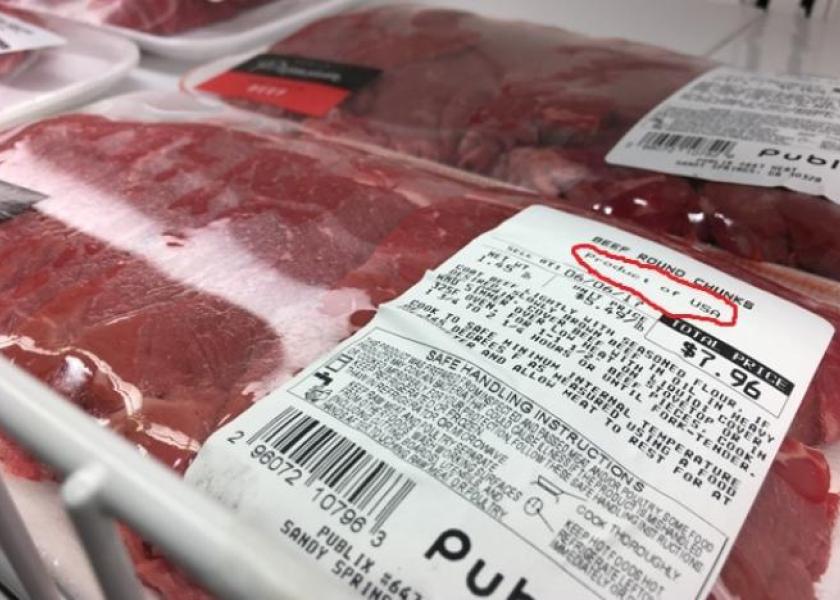NCBA Seeks Clarity, Consistency in Beef Origin Labeling Practices

The National Cattlemen’s Beef Association (NCBA) has reaffirmed its policy supporting voluntary country-of-origin labeling (COOL).
In a press release, NCBA said because it takes the concerns of its members and stakeholders seriously, its Executive Committee has unanimously approved efforts to work with the U.S. Department of Agriculture’s Food Safety Inspection Service (USDA FSIS) to address the Agency’s longstanding policy on geographic origin statements.
“Specifically, NCBA is seeking solutions to the labeling requirements and verification procedures in place for beef products labeled as ‘Product of the U.S.A,’ ‘Made in the U.S.A.,’ or similar origin claims, which will resolve the concerns of beef producers, work at the speed of commerce, meet America's trade obligations and prevent confusion among consumers,” the statement said.
For several months, NCBA has been studying origin claims in use on some beef product labels. During the NCBA Summer Business Meeting in July, NCBA leaders formed a producer-led working group to examine the extent of these concerns and the federal regulations governing such practices. Although the working group has not determined whether such practices are occurring on a widespread basis, concerns remain that consumer expectations relative to beef product labels bearing origin claims may not be consistent with FSIS’s current policy.
“NCBA recognizes that product labels are a defining feature of the shopping experience for consumers. While the majority of beef products currently advertised, marketed, or labeled as ‘Product of the U.S.A.' are likely compliant with current FSIS regulations, the potential for consumer confusion exists,” said NCBA CEO Colin Woodall. “The core mission of FSIS is to ensure all meat and poultry products are safe, wholesome, not adulterated, and properly marked, labeled, and packaged. While FSIS has policy regarding origin labels, ultimately origin claims are marketing claims and should be regulated as such.”
NCBA said it and its state affiliates are committed to working together with USDA to bring forward a meaningful solution to ensure that any voluntary country-of-origin claims are verified by USDA's Agricultural Marketing Service (AMS) prior to the approval of labels by USDA-FSIS. NCBA believes that beef labels with voluntary country-of-origin labeling marketing claims should be verified through existing USDA framework that is market-based and respects international trade commitments. It is critically important that any changes not trigger retaliatory tariffs from Mexico or Canada that have already been approved by the WTO.
NCBA believes that other recent efforts to address these concerns by Congress or other industry groups — while well-intentioned — miss the mark and don’t go far enough to address the situation.
“We look forward to working with USDA and other stakeholders – something NCBA is uniquely positioned to do – to ensure that accurate and voluntary origin labels are in place to benefit beef producers and consumers,” Woodall said.
To listen to the group's podcast on the issue, click play below.
Related story:







